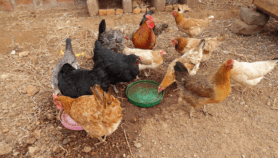By: Tamar Kahn
Send to a friend
The details you provide on this page will not be used to send unsolicited email, and will not be sold to a 3rd party. See privacy policy.
Many government sectors are still finalising their plans for facing the threat of bird flu, with only the agriculture department able to provide details of its strategy.
Bothle Modisane, the department’s senior manager for animal health, says that South Africa has plans in place for controlling an H5N1 bird flu outbreak in poultry, having successfully contained an outbreak of the related H5N2 strain in ostriches last year.
South Africa has banned imports of live poultry and poultry products from countries that have had bird flu in the past six months.
Commercial poultry farmers must supply samples of chicken blood to the national veterinary laboratory for testing each month. Farmers must also report all suspicious diseases or deaths to the state veterinary surgeon. Smaller, rural farms are being inspected regularly, says Modisane. In an outbreak of H5N1, the birds would be culled, he says.
South Africa is fast-tracking registration of the flu drug Tamiflu, with a view to stockpiling it, says health department spokesperson Solly Mabotha.
Approval could take up to nine months, but officials say the drug could be imported in an emergency before that time. They are still discussing how to share a limited supply of Tamiflu if a flu pandemic occurs.
Back to main feature












